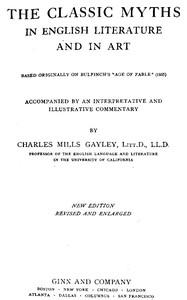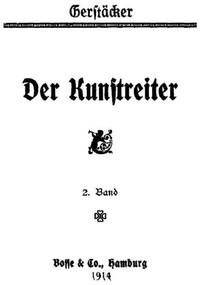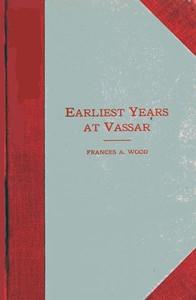|
|
Read this ebook for free! No credit card needed, absolutely nothing to pay.Words: 154595 in 69 pages
This is an ebook sharing website. You can read the uploaded ebooks for free here. No credit cards needed, nothing to pay. If you want to own a digital copy of the ebook, or want to read offline with your favorite ebook-reader, then you can choose to buy and download the ebook.

: The Classic Myths in English Literature and in Art (2nd ed.) (1911) Based Originally on Bulfinch's Age of Fable (1855) by Bulfinch Thomas Gayley Charles Mills - Mythology Classical; English poetry; Mythology Norse@FreeBooksWed 07 Jun, 2023 must contain treasures given by the hospitable King AEolus to their commander. Tempted to secure some portion for themselves, they loosed the string, when immediately the winds rushed forth. The ships were driven far from their course and back again to the island they had just left. AEolus, indignant at their folly, refused to assist them further, and they were obliged to labor over their course once more by means of their oars. Eurylochus hurried back to the ship and told the tale. Ulysses thereupon determined to go himself and try if by any means he might deliver his companions. As he strode onward alone, he met a youth who addressed him familiarly, appearing to be acquainted with his adventures. He announced himself as Mercury, and informed Ulysses of the arts of Circe and of the danger of approaching her. As Ulysses was not to be dissuaded from his attempt, Mercury provided him with a sprig of the plant Moly, of wonderful power to resist sorceries, and instructed him how to act. Meanwhile the companions of Ulysses made mournful plaint to their cruel mistress: Huddling they came, with shag sides caked of mire,-- With hoofs fresh sullied from the troughs o'er-turned,-- With wrinkling snouts,--yet eyes in which desire Of some strange thing unutterably burned, Unquenchable; and still where'er She turned They rose about her, striving each o'er each, With restless, fierce importuning that yearned Through those brute masks some piteous tale to teach, Yet lacked the words thereto, denied the power of speech.... ... "If swine we be,--if we indeed be swine, Daughter of Pers?, make us swine indeed, Well-pleased on litter-straw to lie supine,-- Well-pleased on mast and acorn-shales to feed, Stirred by all instincts of the bestial breed; But O Unmerciful! O Pitiless! Leave us not thus with sick men's hearts to bleed!-- To waste long days in yearning, dumb distress, And memory of things gone, and utter hopelessness! ... "Make thou us men again,--if men but groping That dark Hereafter which th' Olympians keep; Make thou us men again,--if men but hoping Behind death's doors security of sleep;-- For yet to laugh is somewhat, and to sleep;-- To feel delight of living, and to plow The salt-blown acres of the shoreless deep;-- Better,--yea better far all these than bow Foul faces to foul earth, and yearn--as we do now!" So they in speech unsyllabled. But She, The fair-tressed Goddess, born to be their bane, Uplifting straight her wand of ivory, Compelled them groaning to the styes again; Where they in hopeless bitterness were fain To rend the oaken woodwork as before, And tear the troughs in impotence of pain,-- Not knowing, they, that even at the door Divine Odysseus stood,--as Hermes told of yore. Ulysses, reaching the palace, was courteously received by Circe, who entertained him as she had done his companions, but after he had eaten and drunk, touched him with her wand, saying, "Hence, seek the stye and wallow with thy friends." But he, instead of obeying, drew his sword and rushed upon her with fury in his countenance. She fell on her knees and begged for mercy. He dictated a solemn oath that she would release his companions and practice no further harm against him or them; and she repeated it, at the same time promising to dismiss them all in safety after hospitably entertaining them. She was as good as her word. The men were restored to their shapes, the rest of the crew summoned from the shore, and all magnificently entertained day after day, till Ulysses seemed to have forgotten his native land and to have reconciled himself to an inglorious life of ease and pleasure. "But who will guide us?" queried Ulysses in amaze; "for no man ever yet sailed to hell in a black ship." "Son of La?rtes," replied the Goddess, "Ulysses of many devices, nay, trouble not thyself for want of a guide, by thy ship abiding, but set up the mast and spread abroad the white sails and sit thee down; and the breeze of the North Wind will bear thy vessel on her way. But when thou hast now sailed in thy ship across the stream Oceanus where is a waste shore and the groves of Persephone, even tall poplar trees and willows that shed their fruit before the season, there beach thy ship by deep-eddying Oceanus, but go thyself to the dank house of Hades. Thereby into Acheron flows Pyriphlegethon, and Cocytus, a branch of the water of the Styx; and there is a rock, and the meeting of the two roaring waters. There dig a trench and pour a drink offering to all the dead, mead and sweet wine and water, sprinkling white meal thereon. And when thou hast prayed to them, offer up a ram and a black ewe. Then will many spirits come to thee of the dead that be departed; but thou shalt draw thy sharp sword and suffer them not to approach the blood, ere thou hast word of Tiresias." So Ulysses and his companions did as they were bid. And the ship came to the limits of the world, to the deep-flowing Oceanus. There is the land and city of the Cimmerians, where no ray of sunshine ever falls, but deadly night is outspread over miserable mortals. And there Ulysses and those with him performed the drink offering and the prayer and the sacrifice; and Ulysses fended off the spirits of the dead from the blood until the soul of the Theban prophet arrived. And that one, having drunk of the dark blood, declared unto Ulysses the future of his way: how the Earthshaker, god of the waters, should oppose him, but how he should win home without further disaster if, when passing the isle Thrinacia, he would but restrain the spirit of his men so that they should do no injury to the cattle of the Sun grazing thereon. If, however, these cattle were not respected but hurt, then there should follow ruin for both ship and men; and Ulysses himself on the ship of strangers should return late in time to his home, to find sorrows there, proud men wasting his patrimony and wooing his godlike wife to wed her. But that he should avenge their violence, and settle his affairs at home, and then betake himself again to wandering; and that from the sea should his own death come,--"the gentlest death that may be, which shall end thee fordone with smooth old age; and the folk shall dwell happily around thee." Free books android app tbrJar TBR JAR Read Free books online gutenberg More posts by @FreeBooks
: Der Kunstreiter 2. Band by Gerst Cker Friedrich - German fiction 19th century@FreeBooksWed 07 Jun, 2023

: Of the Injustice of Counterfeiting Books From: Essays and Treaties on Moral Political and various Philosophical Subjects by Kant Immanuel - Copyright@FreeBooksWed 07 Jun, 2023
|
Terms of Use Stock Market News! © gutenberg.org.in2025 All Rights reserved.






